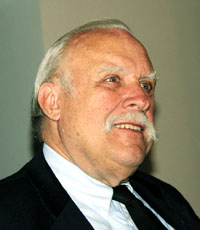Now this could be an interesting story in many ways, but, it is actually a story of a change in times. A hundred years ago there were many more independent newspapers. As a train traveled across the country, news boys, or “butchers,” sold papers walking through the train as it waited at a station. This was
 challenging and many a lad was caught in a story!
challenging and many a lad was caught in a story!
When a train pulled in, a butcher, sometimes many of them, rushed on board with an armload of newspapers. Since they met every train, the boys knew just how much time they had. In the days before radio, such papers were how you kept up with happenings. In a long trip this could be quite important. In bigger towns there might be more than one newspaper being sold.
One problem was the news butchers getting stuck on the train, not getting off before it left the station. But a bigger problem concerned not the boys, but the purchasers of the papers. At the time, a paper cost nominally a nickel, maybe a dime, and the boys were known, on occasion, to do a pretty bad job of making change. The excuse was simple, they had to operate quickly and that caused the mistake. Usually, they never gave too much change! Many a conductor or porter had to settle such disputes.
In stops at major stations, a train might sit for up to half an hour, but most stops were just a few minutes. The train might be taking on water, mail, or other supplies at these stops. If it was a well filled train, the butcher might sell out before he was completely through the train, but that was the exception.
In this area, the practice was not well accepted. The main line companies had their own stands where they sold things, like newspapers. Eventually, even those that allowed the butchers tired of the problems on the trains, and only let them sell on the platform. It did not eliminate all the problems with money, but it did keep them from being stuck on a train!
On some lines, a train man would get papers and sell them on the train. In the Pullman car, often it was a free service each morning. Even today, on some train there is a fresh paper waiting at the door of the sleeping car passengers in the morning.